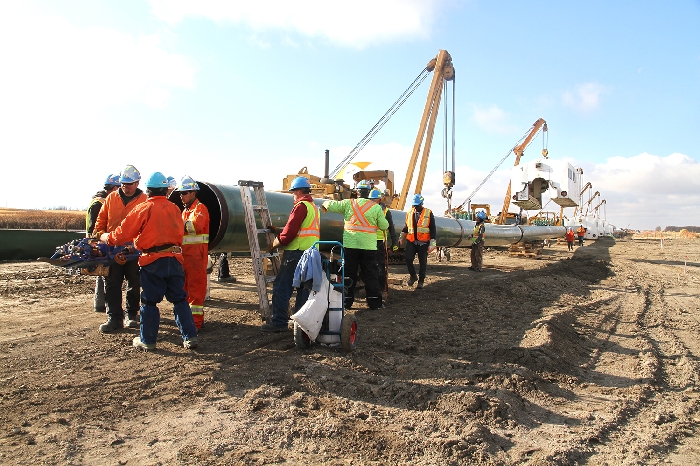TC Energy terminates Keystone XL Pipeline
June 9, 2021, 6:02 pm


TC Energy has terminated the Keystone XL Pipeline, three and a half years after cancelling the Energy East Pipeline that would have included significant investment in the Moosomin area.
The company confirmed Wednesday that after a comprehensive review of its options, and in consultation with the Government of Alberta, which had backed the project to the tune of $1.3 billion, it has terminated the Keystone XL Pipeline Project.
The project has been suspended since early this year. Construction activities were suspended following the revocation of its Presidential Permit on January 20, 2021.
TC Energy says it will continue to coordinate with regulators, stakeholders and Indigenous groups to meet its environmental and regulatory commitments and ensure a safe termination of and exit from the Project.
Following is a statement from TC Energy’s President and Chief Executive Officer, François Poirier:
"We value the strong relationships we’ve built through the development of this Project and the experience we’ve gained,' said TC Energy’s President and Chief Executive Officer, François Poirier.
"We remain grateful to the many organizations that supported the Project and would have shared in its benefits, including our partners, the Government of Alberta and Natural Law Energy, our customers, pipeline building trade unions, local communities, Indigenous groups, elected officials, landowners, the Government of Canada, contractors and suppliers, industry associations and our employees.
"Through the process, we developed meaningful Indigenous equity opportunities and a first-of-its-kind, industry leading plan to operate the pipeline with net-zero emissions throughout its lifecycle," Poirier said. "We will continue to identify opportunities to apply this level of ingenuity across our business going forward, including our current evaluation of the potential to power existing U.S. assets with renewable energy."
Poirier said the end of Keystone XL is a setback, but TC Energy has a lot of other projects on the go. "The Company continues to progress $20 billion of secured growth projects, $7 billion of projects under development, and numerous additional initiatives aligned with its risk preferences and return criteria across its business lines and geographies," he said.
"Looking forward, there is tremendous opportunity for TC Energy in the energy transition with its irreplaceable asset footprint, financial strength and organizational capabilities positioning it to capture further significant and compelling growth. The Company will continue to build on its 70-year history of success and leverage its diverse businesses in natural gas and liquids transportation along with storage and power generation to continue to meet the growing and evolving demand for energy across the continent."
Energy East history
Energy East, cancelled in 2017, was a proposal by TransCanada Pipelines to repurpose part of the existing pipeline across Western Canada and Ontario from natural gas to oil, and build new pipeline through Quebec and New Brunswick, to take Western Canadian oil to eastern refineries in Quebec and New Brunswick, and potentially to an export position at St. John, New Brunswick.
TransCanada withdrew its application to the National Energy Board for approval of the pipeline after the federal government announced a change that would take all upstream and downstream emissions into account for any future pipelines.
Moosomin would have been a major beneficiary of Energy East as TransCanada planned a 1,050,000 barrel tank farm at the Moosomin compressor station, a feeder pipeline from Cromer, Manitoba to Moosomin, and potentially an additional pipeline from Williston, North Dakota to Moosomin.






SM.jpg)




























